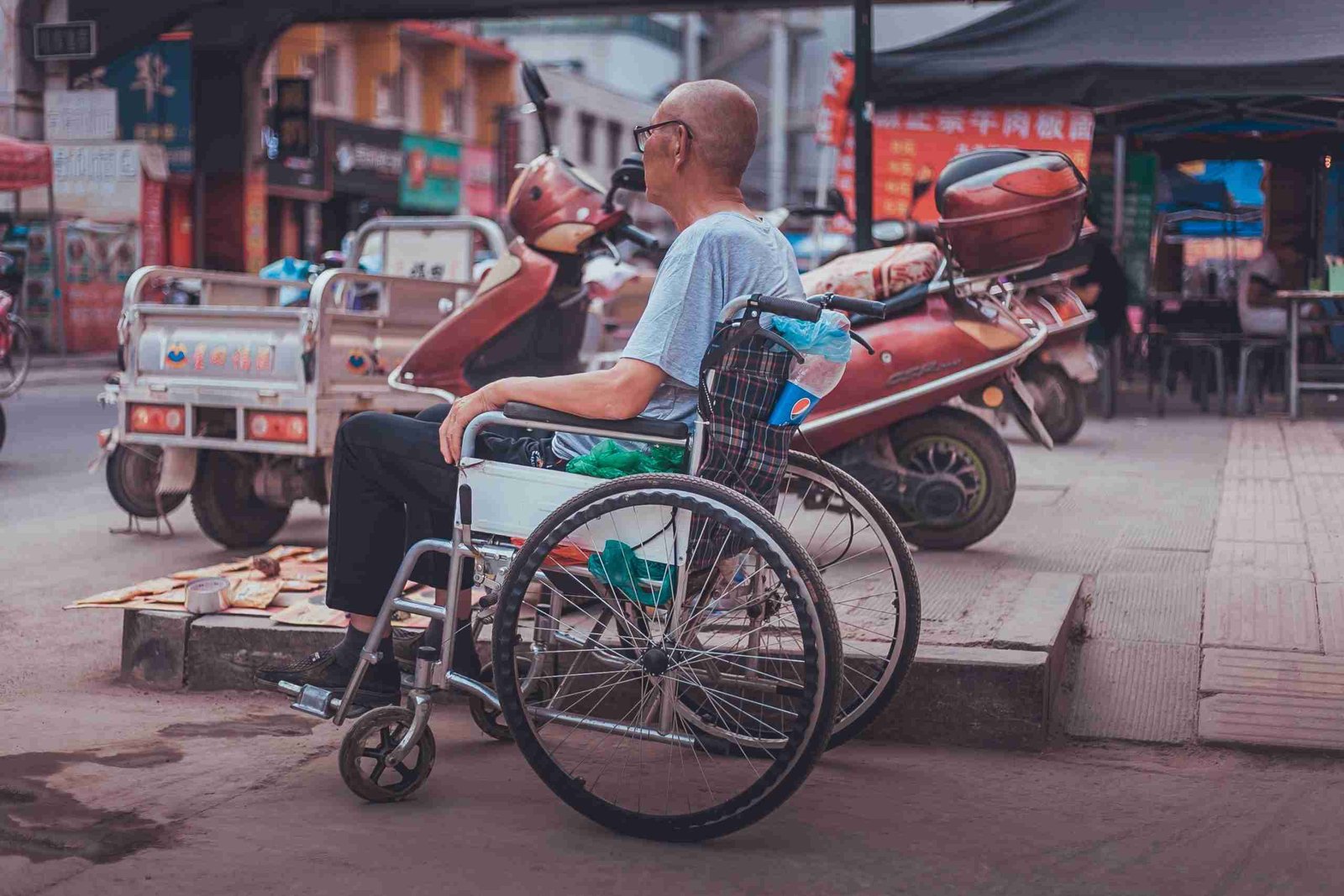
Traveling with Disabilities: Tips and Resources for a Smooth Trip
Written: The Top Thing Staff | August 18, 2023
1. Research and Choose Accessible Destinations
Identifying destinations with strong accessibility ratings is the first step in planning a smooth travel experience and deciding on ways to visit. Cities known for their accessible public transportation systems, including trains, can significantly reduce the travel challenges faced by citizens when moving around in various ways.
Look for cities that not only talk about accessibility but walk the walk too, especially for disabled people facing travel challenges, including those with a handicap. Websites dedicated to disability and handicap travel often list top destinations renowned for their inclusivity, from seamless sidewalk ramps to public transport options accommodating wheelchairs, serving as an example for overcoming challenges in travel planning.
Prioritize those offering accommodations for disabilities. This might include:
- Wheelchair-accessible paths in national parks
- Priority access at busy sites to avoid long waits
- Discounts or free entry for caregivers at various attractions
Before you decide on a destination, dive deep into its official tourism website or dedicated platforms providing information on accessible travel, planning for any potential handicap challenges you may encounter. These travel resources are goldmines of information, detailing everything from which hotels have adapted rooms for handicap challenges to how easy it may be to fly there with your specific needs in mind.
Remember, the amount of enjoyment you’ll get out of your travel trip directly correlates with how well the destination can cater to your need and may face challenges. Don’t shy away from contacting places directly if you need more detailed information about travel challenges or medication; most are more than willing to help make your visit as enjoyable as possible.
2. Plan for Transportation Needs in Advance
When traveling with disabilities, ensuring that your transportation and medication needs are sorted well before you set off can make or break the trip. Begin by reserving accessible rental vehicles or specialized transport services as early as possible for travel, and may need medication. The demand for these medications can be high, especially during peak travel seasons, as travelers may need them.
Next, engage directly with airlines or train companies prior to booking your travel, as you may need to discuss medication. Confirming the availability of accessibility features is crucial. Ask about their travel policies and facilities such as priority boarding, additional space for wheelchairs, medication storage, and assistance services at airports and stations that passengers may need. Remember, not all travel companies may have the same level of accessibility accommodations, so it pays to do your homework if you need them.
Mapping out accessible travel routes between your lodgings and planned activities is another vital step you may need. This planning phase should include checking if sidewalks are wheelchair-friendly or if public transportation has necessary accommodations like low-floor buses or trains with dedicated spaces for wheels, which may need to consider travel needs.
Here are a few practical steps:
- Contact the Transportation Security Administration (TSA) ahead of time if traveling by air; they may offer assistance you need through security checks.
- Use travel apps and websites dedicated to mapping out accessible routes in cities worldwide that may be useful.
- Reach out to local disability advocacy groups in your travel destination for tips and advice you may need.
3. Book Accessible Accommodations
When planning travel with disabilities, securing the right accommodation may be crucial. Start by ensuring that your chosen hotel or lodging for travel has ADA-compliant rooms or an equivalent standard in place, which may include features like wheelchair accessibility. This means checking not just for wheelchair accessibility but also for specific travel amenities tailored to various needs.
Key amenities to look out for include:
- Roll-in showers, which are essential for many travelers with mobility issues.
- Visual alarm devices, aiding those with hearing impairments.
Don’t stop at room features; take into account the overall property’s readiness to assist guests with disabilities during travel. Ask detailed questions about their emergency evacuation procedures specifically designed for guests with disabilities during travel. It’s important to know how the staff would assist in case of an emergency and if there are any special routes or safety measures in place.
Taking these steps ensures not only comfort but also peace of mind during your travels. Remember, it’s better to ask too many questions than too few when planning travel. Notes on each accommodation’s response can help you make an informed travel decision and avoid potential stressors upon arrival.
4. Connect with Local Disability Organizations
Reaching out to local disability organizations before your trip can significantly enhance your travel experience. These groups have a wealth of knowledge about accessible travel resources in their area.
- Contact for Insight: They can provide insights into the most wheelchair-friendly public transportation options for travel, or where to find reliable providers of mobility aids.
- Support Services: Inquiring about travel support services beforehand ensures you know what help is available during your stay. This could range from personal assistance services to emergency repair services for wheelchairs, including travel assistance.
- Recommendations Galore: Looking for places that are both enjoyable and accessible? Local organizations often have lists of dining, shopping, and entertainment venues known for accommodating disabled individuals effectively.
Connecting with these organizations not only helps you plan a smoother trip but also connects you with the local community of disabled people and advocates. It’s an opportunity to share experiences and tips which might not be widely known or found online.
5. Pack Essential Medical Supplies and Documents
When traveling with a disability, being prepared is key. It’s crucial to pack extra medication and medical supplies, enough to cover unexpected delays. You never know when a flight might be canceled or if your stay will extend longer than planned.
Always carry copies of your prescriptions in your luggage. This not only helps at security checkpoints but also ensures you can refill them if lost or needed. A letter from your doctor detailing your condition and specific needs can smooth out potential bumps during your travels, especially when dealing with TSA Cares personnel who are trained to assist travelers with disabilities.
Don’t forget the importance of including insurance documents and emergency contact information in your travel folder. In an unfamiliar place, knowing you have all necessary documentation for medical care brings peace of mind.
- Medication: Always bring more than you think you’ll need.
- Medical Equipment: Check ahead for airline policies regarding transport.
- Prescriptions & Doctor’s Letter: These are essential for explaining your needs.
- Insurance & Emergency Contacts: Vital for unforeseen circumstances.
Traveling while disabled may require extra planning, but it doesn’t mean it can’t be enjoyable or stress-free. With the right preparation—packing essential medications, securing important documents like doctor’s letters and insurance info—you’re setting yourself up for a smoother journey.
6. Use Technology and Apps for Accessibility
Traveling with disabilities doesn’t have to be a daunting task, especially in this digital age. By harnessing the power of technology and apps designed for accessibility, the world becomes much more navigable.
First off, downloading apps that offer real-time accessibility information can significantly ease your travel experience. These applications provide insights into which venues and public transport systems are disability-friendly, from ramps and elevators to accessible restrooms. Imagine knowing beforehand whether a museum or restaurant can accommodate your needs—priceless!
Next up, consider navigation apps tailored specifically for those with accessibility needs. These aren’t just any maps; they highlight the easiest routes taking into account sidewalks, pedestrian crossings, and public transportation options that cater to disabled travelers. No more guesswork on whether a path is wheelchair-friendly or if there’s an unexpected flight of stairs along your route.
Lastly, don’t overlook the importance of technology in breaking down language barriers or unfamiliar environments. Apps that assist with communication in foreign languages can be lifesavers when you’re trying to explain your needs in a country where you don’t speak the local tongue. Moreover, tools that help understand surroundings through audio descriptions or tactile feedback ensure you’re never lost or out of depth.
7. Hire a Travel Assistant or Guide if Necessary
Traveling with disabilities can sometimes require more planning and assistance than usual. One way to ensure a smooth trip is by considering professional services for personal assistance or guided tours that specialize in accessibility. These professionals are trained to understand and cater to the specific needs of travelers with disabilities, making your journey less stressful.
Before you decide, evaluate the cost versus benefits of hiring local support based on the challenges you might face at your destination. Some places may have complex navigation issues or lack accessible facilities which could make having an assistant invaluable. On the other hand, well-equipped destinations might only necessitate minimal help.
It’s crucial to ensure compatibility between you and your potential assistant or guide. They should not only understand your specific needs but also be someone you’re comfortable spending time with throughout your day. Compatibility ensures they can effectively counter any barriers during your trip, providing the necessary help exactly when you need it.
- Pros:
- Tailored assistance
- Stress reduction
- Better navigation through challenging environments
- Cons:
- Additional cost
- Time required for finding a compatible match
Note that while this option adds an expense to your travel budget, the investment may significantly enhance your travel experience by removing barriers and enabling fuller engagement with your destination.
8. Know Your Rights and Legal Protections
Before you embark on your journey, it’s crucial to familiarize yourself with the disability rights and laws specific to your destination country. Each country has its own set of regulations designed to protect citizens and travelers with disabilities, ensuring equal access and non-discrimination in various sectors including transportation, accommodation, and public services.
Understanding airline and accommodation policies regarding travelers with disabilities is equally important. Airlines are required by law in many countries to accommodate passengers with disabilities by providing services like priority boarding, assistance during the flight, and help navigating through airports. Similarly, accommodations must ensure accessible rooms are available and equipped according to standard requirements.
Be prepared to advocate for your rights respectfully but firmly if necessary. This means having proof of your condition readily available if needed (though not always required), being clear about what adjustments or aids you require for a comfortable stay or journey, and knowing who to contact should your needs be disregarded.
- Research: Start by researching the disability laws applicable in your destination.
- Contact: Reach out directly to service providers (airlines/hotels) beforehand to discuss specific needs.
- Documentation: Keep documentation handy as proof of disability when traveling; this can include doctor’s notes or disability certification.
9. Prepare for Emergency Situations
When traveling with disabilities, being prepared for emergencies is crucial. It’s not just about having a plan; it’s about ensuring you can enjoy your trip with peace of mind.
Start by identifying local emergency services and understanding how to contact them. Every country has its own version of ‘911’, and knowing this number can be a lifesaver. Also, check if there are any specific emergency numbers or services tailored to individuals with disabilities.
Having a contingency plan for replacing lost or damaged medical equipment while abroad is equally important. Research ways to quickly access replacements or repairs for essential devices like wheelchairs, hearing aids, or other assistive technologies. Some travel insurance policies offer coverage for such situations, so it’s worth checking the details before you leave.
Keep a comprehensive list of nearby hospitals that can accommodate your health needs on hand at all times during your travels. This list should include addresses, phone numbers, and any special accommodations they offer for disabled patients.
For example:
- John Doe Hospital: Wheelchair accessible rooms available.
- Smith Medical Center: Sign language interpreters on staff.
- City General Hospital: Specialized care units for various disabilities.
10. Share Your Travel Experiences to Help Others
After exploring new places, take a moment to reflect on your journey and how it could benefit others. Writing reviews that focus on the accessibility of sites you’ve visited is a great start. Mention ramps, bathroom sizes, or any detail that made your travel easier or harder.
Social media platforms, blogs, and disability forums are perfect for sharing tips and advice. Your insights can guide future travelers in making informed decisions about their trips. It’s not just about where you went but how accessible those places were for people with disabilities.
Feedback is gold for service providers aiming to improve their offerings. Don’t hesitate to offer constructive criticism or praise where it’s due. Whether it’s a hotel that went the extra mile in accommodating your needs or an attraction that fell short on accessibility features—your feedback matters.
- Write Reviews: Highlight wheelchair access, staff assistance levels.
- Share Tips: Use Instagram stories for quick advice; write detailed blog posts for comprehensive guides.
- Offer Feedback: Directly reach out to venues via email or feedback forms online.
Frequently Asked Questions
How do I choose a travel destination when I have a disability?
Look for places known for their accessibility. Research online, read reviews from other travelers with disabilities, and consider cities or countries that have won awards for accessibility.
What’s the best way to ensure transportation will meet my needs?
Plan ahead! Contact transportation services directly to discuss your specific needs. Whether it’s trains, planes, or taxis, knowing what accommodations they offer in advance can save you headaches later.
How can I find accessible accommodation?
Start by using websites and apps dedicated to accessible travel. Many now include filters for different accessibility features like wheelchair access, grab bars in bathrooms, and more. Always call ahead to confirm details.
Is connecting with local disability organizations really helpful?
Absolutely! Local organizations can provide insider tips on navigating the area and may offer resources such as equipment rental or personal assistant services.
Why is packing essential medical supplies so important?
You never want to be caught without your necessities. From medications to spare parts for mobility aids, having extra ensures you’re prepared for anything – think of it as your safety net!
Can technology really make traveling easier for someone with disabilities?
Yes! Apps can help you find accessible routes, translate languages instantly if you’re abroad, and even locate nearby accessible restrooms. Technology is a game-changer in making travel more manageable.
What should I know about my rights while traveling with a disability?
Familiarize yourself with local laws regarding disability rights in your destination country. Knowing these can empower you if you face discrimination or accessibility issues during your travels.



